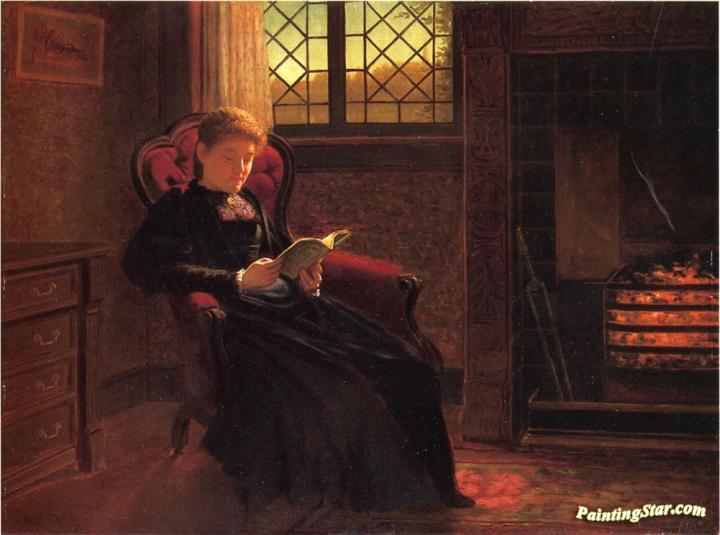Tuesday
“The Day Is Done” functioned as the introduction to an anthology that Henry Wadsworth Longfellow compiled in 1844 called The Waif. In it, he declares that one purpose of poetry is to soothe us when we are feeling sad and depressed.
But only certain poems can perform this function. Longfellow prefers “some simple and heartfelt lay” over “the grand old masters.” He wants “some humbler poet, whose songs gushed from his heart” over poems that feature “mighty thoughts.” Many of the poems in The Waif are anonymous, and one doesn’t find Shakespeare’s intricate sonnets, Milton’s lofty pastorals, Dryden’s imperious verse, Pope’s witty couplets, or the high Romantics’ soaring lyrics in the collection (with the exception of one quieter-than-normal Percy Shelley poem). Instead, there are mostly poems of the kind that Longfellow himself wrote.
What I appreciate about “The Day Is Done” is how Longfellow is modeling reading practices for his audience. If you sit down before the fire with a book of poetry and lose yourself in it,
the night shall be filled with music
And the cares that infest the day,
Shall fold their tents, like the Arabs,
And as silently steal away.
Here’s Longfellow’s introductory poem:
The Day Is Done
By Henry Wadsworth LongfellowThe day is done, and the darkness
Falls from the wings of Night,
As a feather is wafted downward
From an eagle in his flight.I see the lights of the village
Gleam through the rain and the mist,
And a feeling of sadness comes o’er me,
That my soul cannot resist:
A feeling of sadness and longing,
That is not akin to pain,
And resembles sorrow only
As the mist resembles the rain.
Come, read to me some poem,
Some simple and heartfelt lay,
That shall soothe this restless feeling,
And banish the thoughts of day.Not from the grand old masters,
Not from the bards sublime,
Whose distant footsteps echo
Through the corridors of Time.For, like strains of martial music,
Their mighty thoughts suggest
Life’s endless toil and endeavor;
And to-night I long for rest.
Read from some humbler poet,
Whose songs gushed from his heart,
As showers from the clouds of summer,
Or tears from the eyelids start;Who, through long days of labor,
And nights devoid of ease,
Still heard in his soul the music
Of wonderful melodies.Such songs have power to quiet
The restless pulse of care,
And come like the benediction
That follows after prayer.Then read from the treasured volume
The poem of thy choice,
And lend to the rhyme of the poet
The beauty of thy voice.And the night shall be filled with music
And the cares that infest the day,
Shall fold their tents, like the Arabs,
And as silently steal away.
Further thought: The last two lines are the most famous. I remember coming across a comic parody of them when a child that I still remember to this day:
A man approached a weighing machine
To-wards the close of day
A counterfeit penny dropped into the slot
And silently stole a weigh.


